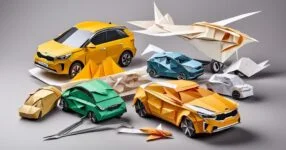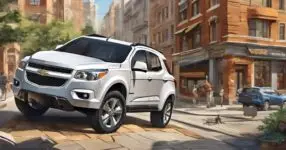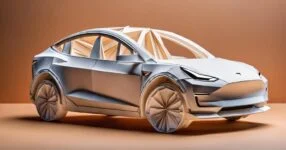The pros of Volkswagen vehicles are they offer advanced features, such as three-zone climate control, IQ.DRIVE, and impressive towing capacity. The driving experience is enhanced with electric options like the e-Golf, sporty designs, and strong charging capabilities.
The cons of Volkswagen vehicles are high maintenance costs, difficulty finding specialized parts, and reports of poor ride quality at high speeds. Additionally, some models present challenges like turbo lag, limited rear legroom, and lower range for electric vehicles.
Takeaways:
- Volkswagen offers a diverse and performance-focused lineup, including electric vehicles and sporty models like the Golf GTI.
- Maintenance and reliability concerns, including higher costs and difficulty finding specialized parts, can impact ownership experience.
- The brand is committed to environmental sustainability, with significant investments in electric vehicles and comprehensive recycling programs.
- Advanced safety features and exceptional driving dynamics provide a positive driving experience, despite some reported reliability issues.
| Pros of Volkswagen | Cons of Volkswagen |
|---|---|
| Diverse Vehicle Range | Maintenance Costs |
| Advanced Features in Models | Ride Quality Concerns |
| Electric Vehicle Benefits | High Purchase Price |
| Driving Experience | Limited Electric Vehicle Range |
| German Engineering and Quality | Performance Limitations |
| Interior Space and Comfort | Limited Rear Legroom |
| Innovative Safety Features | Fuel Efficiency Concerns |
| Strong Warranty and Towing Capacity | Interior Material Quality |
| Eco-Friendly Options | Specialized Parts Availability |
| Sporty and Timeless Design | Environmental and Sustainability Concerns |
Pros of Volkswagen
- Diverse Vehicle Range: Volkswagen offers a diverse range of vehicles, including electric cars like the e-Golf and ID.4, sporty models, and family-friendly options such as the Passat and Tiguan. This variety ensures that there is a Volkswagen to meet the needs and preferences of a wide range of customers, from those seeking eco-friendly transportation options to those needing spacious vehicles for family travel.
- Advanced Features in Models: The Passat, for example, boasts three-zone climate control, electrically powered seats and mirrors, and a detailed driver information system. These advanced features enhance the driving experience by providing comfort, convenience, and valuable information to the driver, making Volkswagen models appealing for their technological advancements.
- Electric Vehicle Benefits: The ID.4 is noted for its strong charging curve and complimentary charging on Electrify America’s network, along with a tight turning radius. These benefits make Volkswagen’s electric vehicles competitive in the EV market, offering cost savings on fuel and contributing to environmental sustainability.
- Driving Experience: The e-Golf is praised for its great driving experience, which is a common highlight across Volkswagen models. The emphasis on driving dynamics ensures that Volkswagen vehicles are not just practical but also enjoyable to drive, balancing performance with comfort.
- German Engineering and Quality: The Polo is a testament to German engineering and quality, offering a sporty, timeless European style at a good price. Volkswagen’s reputation for quality and durability is a significant selling point, reflecting the brand’s commitment to manufacturing vehicles that are both reliable and aesthetically pleasing.
- Interior Space and Comfort: The Tiguan and Atlas are specifically highlighted for their spacious interiors, which provide ample room for passengers and cargo. This makes them ideal for families and individuals who prioritize comfort and utility in their vehicle choice.
- Innovative Safety Features: The ID.4 comes equipped with IQ.DRIVE, which includes adaptive cruise control, lane-keeping assist, and driver-initiated lane changing. These innovative safety features represent Volkswagen’s commitment to incorporating advanced technology to enhance driver and passenger safety.
- Strong Warranty and Towing Capacity: The Atlas offers an impressive warranty and incredible towing capacity, attributes that provide peace of mind and practicality for owners. The robust warranty coverage ensures that customers feel secure in their purchase, while the towing capacity enhances the vehicle’s versatility.
- Eco-Friendly Options: Volkswagen’s focus on electric vehicles like the e-Golf and ID.4 demonstrates the company’s commitment to sustainability and reducing carbon emissions. Offering eco-friendly options appeals to environmentally conscious consumers and positions Volkswagen as a leader in green automotive solutions.
- Sporty and Timeless Design: Volkswagen’s design ethos, as seen in models like the Polo, combines sportiness with timeless European elegance. This design philosophy ensures that Volkswagen vehicles remain appealing and relevant, transcending fleeting fashion trends in the automotive industry.
Cons of Volkswagen
- Maintenance Costs: Some Volkswagen models can be expensive to maintain as they age, which may deter potential buyers who are concerned about long-term ownership costs. The need for specialized parts and services can add to the expense, making ownership less economical over time.
- Ride Quality Concerns: The Passat has been criticized for its poor ride quality at higher speeds, indicating that some Volkswagen models may not deliver the expected level of comfort and stability during long journeys or on uneven road surfaces.
- High Purchase Price: The e-Golf is noted for its relatively high purchase price compared to some competitors. This initial cost barrier may make it less accessible to buyers on a budget or those weighing the value proposition against other electric vehicles in the market.
- Limited Electric Vehicle Range: Despite its advantages, the e-Golf has a shorter range than some of its competitors, which could limit its appeal to consumers who prioritize long-distance usability and convenience in an electric vehicle.
- Performance Limitations: The Polo is reported to have turbo lag below 2,000 rpm, which can affect its performance, particularly during acceleration. This limitation may disappoint drivers who expect responsive power delivery from their vehicle.
- Limited Rear Legroom: The Polo also suffers from limited rear legroom, making it less comfortable for adult passengers in the back seat. This design constraint could make the Polo less suitable for families or those requiring ample space for rear-seat occupants.
- Fuel Efficiency Concerns: When pushed, the Polo can become a fuel guzzler, which contradicts the expectation of efficiency often associated with smaller cars. This decreased fuel efficiency can lead to higher running costs over time, especially for drivers who frequently operate their vehicle in demanding conditions.
- Interior Material Quality: The 2024 Atlas has been criticized for its use of hard plastics and cheaper materials, indicating a compromise on interior quality. This perceived reduction in quality could detract from the premium feel that customers expect from Volkswagen vehicles.
- Specialized Parts Availability: Some Volkswagen models may require specialized parts that can be difficult to find, complicating repairs and maintenance. This challenge can lead to longer downtimes and potentially higher costs for owners seeking to maintain or repair their vehicle.
- Environmental and Sustainability Concerns: While Volkswagen has made strides in offering electric and eco-friendly vehicles, the brand’s past controversies, such as the emissions scandal, may still impact consumer perception regarding its commitment to environmental sustainability. This background may lead some environmentally conscious consumers to question the authenticity of Volkswagen’s green initiatives.
Benefits of Volkswagen
Volkswagen, with its illustrious historical legacy, offers a diverse range of vehicles, including electric models, that cater to a broad spectrum of drivers worldwide. The brand’s extensive model lineup, featuring popular models such as the Atlas Cross Sport, Golf GTI, Jetta, and the electric ID.4, underscores its commitment to innovation and meeting the varied needs of its customers. Volkswagen has established itself as a leader in electric vehicles, highlighting its dedication to sustainable mobility and environmental stewardship. This leadership is not only a testament to its innovative spirit but also to its forward-thinking approach in an ever-evolving automotive landscape.
Moreover, Volkswagen’s strong global presence reinforces its popularity among drivers across the globe, making it a reliable and sought-after brand. The vehicles under the Volkswagen marque are renowned for their impressive features and technology, exceptional fuel efficiency, and sleek designs, which collectively enhance the driving experience. These attributes, combined with the brand’s rich heritage and continuous pursuit of excellence, make Volkswagen a compelling choice for individuals looking for quality, performance, and sustainability in their vehicles.
Negatives of Volkswagen

Despite its notable achievements and contributions to the automotive industry, the brand has encountered significant challenges, including an emissions scandal that notably tarnished its reputation. This scandal not only damaged Volkswagen’s public image but also led to hefty fines and settlements, financially impacting the company. Furthermore, Volkswagen owners have reported potential reliability issues and high maintenance costs, which can deter prospective buyers and affect long-term customer satisfaction.
Another concern is Volkswagen’s heavy dependence on the European market, limiting its global expansion opportunities and increasing vulnerability to regional market fluctuations. This reliance poses a risk to its ambition to capture a larger share of the global automotive market. Additionally, the intense competition in the automotive industry poses a challenge to Volkswagen’s profitability and market positioning. Brands are constantly innovating and offering new features, making it imperative for Volkswagen to stay ahead, which can be a daunting task.
Lastly, the challenge of finding specialized mechanics and parts for Volkswagen vehicles can further impact the overall maintenance and repair costs for owners. This not only affects the cost of ownership but also could lead to longer downtimes for repairs, further inconveniencing the owners.
Volkswagen Performance

Performance-oriented models like the Golf GTI and Golf R highlight Volkswagen’s commitment to delivering sporty driving dynamics and engaging road experiences. These models are emblematic of the brand’s dedication to combining power with precision, offering drivers both exhilaration and control. The Golf GTI, in particular, stands out with its turbocharged engine, which enables quick acceleration alongside precise handling. This makes it a favored option among driving enthusiasts who crave a vehicle that feels as lively in city traffic as it does on winding country roads.
Furthermore, Volkswagen’s performance lineup is not limited to the Golf variants. The Jetta GLI offers another dimension of Volkswagen’s performance ethos, featuring a sport-tuned suspension and a robust turbocharged engine designed for spirited drives. Both the Golf GTI and Jetta GLI, along with other performance-oriented models in Volkswagen’s roster, typically include advanced features such as adaptive suspension systems and performance brakes. These additions enhance the driving capabilities, ensuring that vehicles are not just fast, but also agile and safe.
Reliability and Maintenance

While Volkswagen vehicles are celebrated for their performance and innovative features, potential reliability issues and higher maintenance costs have been points of concern for owners and prospective buyers. The emissions scandal notably tarnished the brand’s reputation, raising questions about the reliability of Volkswagen vehicles. This incident has led to a heightened scrutiny of the brand’s commitment to vehicle durability and trustworthiness.
Moreover, Volkswagen owners often face higher maintenance costs compared to some of their competitors. This aspect of ownership can significantly impact the total cost of ownership, making Volkswagens potentially more expensive to keep over the long term. The challenge of finding specialized mechanics and parts can exacerbate this issue, sometimes leading to longer repair times and further inconvenience for the vehicle owners.
Concerns about the long-term durability of Volkswagen vehicles have also affected consumer trust. However, it’s important to note that Volkswagen has undertaken efforts to address these issues, working to enhance reliability and reduce maintenance expenses. These measures reflect the brand’s recognition of the concerns and its commitment to improving the ownership experience for its customers.
Environmental Impact

Volkswagen’s journey towards environmental stewardship is marked by significant initiatives and challenges. The company’s ambitious push into electric vehicles and comprehensive sustainability efforts underscore its commitment to reducing its ecological footprint.
However, the shadow of the emissions scandal continues to influence perceptions of Volkswagen’s environmental impact, necessitating a closer examination of its repercussions, electric vehicle initiatives, and sustainability efforts.
Emissions Scandal Repercussions
The emissions scandal not only tarnished the reputation of Volkswagen but also underscored the broader environmental ramifications of diesel emissions, urging a reevaluation of industry standards and regulations.
This event significantly damaged Volkswagen’s credibility within the automotive industry, leading to substantial fines, settlements, and legal challenges.
The scandal illuminated the pressing need for stricter environmental regulations concerning diesel emissions, highlighting the detrimental impact these emissions have on the environment.
Furthermore, it served as a stark cautionary tale for automakers globally about the critical importance of adhering to environmental standards and maintaining transparency.
Volkswagen’s shift towards electric vehicles in response to the scandal marks a pivotal moment in the industry, emphasizing the urgent need for sustainable automotive solutions.
Electric Vehicle Initiatives
In response to the emissions scandal and its aftermath, Volkswagen has significantly increased its investment in electric vehicles, emphasizing its dedication to reducing carbon emissions and fostering sustainable mobility. The brand is committed to launching a broad spectrum of electric models, notably including the acclaimed ID.4, which showcases the company’s focus on innovative electric mobility solutions.
These vehicles boast remarkable range and charging capabilities, making long-distance travel more feasible and environmentally friendly. Furthermore, Volkswagen has initiated recycling programs aimed at the responsible management of batteries, underscoring its commitment to minimizing the environmental impact.
This strategic pivot towards electric vehicles not only aligns Volkswagen with global efforts to combat climate change but also positions the brand as a leader in promoting cleaner, sustainable transportation options.
Sustainability Efforts Overview
Emphasizing a commitment to environmental stewardship, Volkswagen has ramped up its sustainability efforts, focusing on mitigating the ecological impact of its operations through innovative initiatives and practices. Central to its strategy is the reduction of carbon emissions, primarily through the development and promotion of sustainable mobility initiatives, including a significant investment in electric vehicles.
Moreover, Volkswagen has implemented comprehensive recycling programs aimed at reducing waste and enhancing sustainability throughout its production processes. These efforts are underscored by a holistic approach to minimizing the environmental impact of manufacturing, demonstrating Volkswagen’s firm commitment to environmental sustainability.
This comprehensive strategy not only highlights Volkswagen’s focus on reducing its carbon footprint but also showcases its dedication to promoting eco-friendly practices across the automotive industry.
Safety Features

Recognizing the paramount importance of occupant safety, Volkswagen equips its vehicles with advanced safety technologies, including driver-assist features and rigorous crash testing procedures, to meet high safety standards. These state-of-the-art safety technologies encompass a range of features designed to protect occupants before, during, and after a collision.
For instance, lane departure warning and adaptive cruise control work in tandem to prevent accidents by maintaining a safe distance from other vehicles and ensuring the vehicle stays within its lane.
Further bolstering Volkswagen’s commitment to safety is its inclusion of electronic stability control and multiple airbags in its vehicles. These features are critical in enhancing occupant protection by reducing the risk of rollover accidents and mitigating injury in the event of a collision. Volkswagen’s rigorous crash testing procedures underscore its dedication to upholding the highest safety standards, ensuring that all vehicles provide superior protection for occupants.
The brand’s investment in innovative safety measures reflects its overarching goal to reduce accidents and improve vehicle safety. This commitment not only contributes to Volkswagen’s reputation for producing safe vehicles but also underscores the brand’s focus on the well-being and security of drivers and passengers alike.
Customer Experiences

While Volkswagen’s commitment to safety is evident in its advanced technologies, the experiences of actual customers offer insight into the vehicle’s performance in real-world conditions. Volkswagen has cultivated a reputation for producing vehicles that excel in handling, acceleration, and fuel efficiency. However, the ownership experience is not without its challenges. Customer feedback highlights a mixture of satisfaction and concern, underscoring the importance of weighing both the positive and negative aspects of owning a Volkswagen.
- Positive Experiences:
- Many drivers commend Volkswagen for its exceptional handling and acceleration, contributing to a more enjoyable driving experience.
- The brand is often praised for its fuel-efficient vehicles, which can lead to long-term savings on fuel costs.
- Challenges:
- Reliability concerns, including engine problems, have been reported, raising questions about the longevity and dependability of Volkswagen vehicles.
- Owners have also highlighted expensive repair costs and the difficulty in finding specialized mechanics and parts, which can negatively impact the overall ownership experience.
Prospective Volkswagen buyers should carefully consider these aspects to make an informed decision about whether a Volkswagen vehicle aligns with their expectations and lifestyle.
Conclusion
In conclusion, Volkswagen’s integration of advanced technology and commitment to safety have positioned it as a leader in the automotive industry, particularly within the electric vehicle sector.
Despite facing challenges such as the emissions scandal and concerns over reliability and repair costs, the brand’s dedication to innovation, environmental responsibility, and customer satisfaction remains evident.
It is imperative for Volkswagen to address these challenges to maintain its competitive edge and continue its legacy of automotive excellence.










